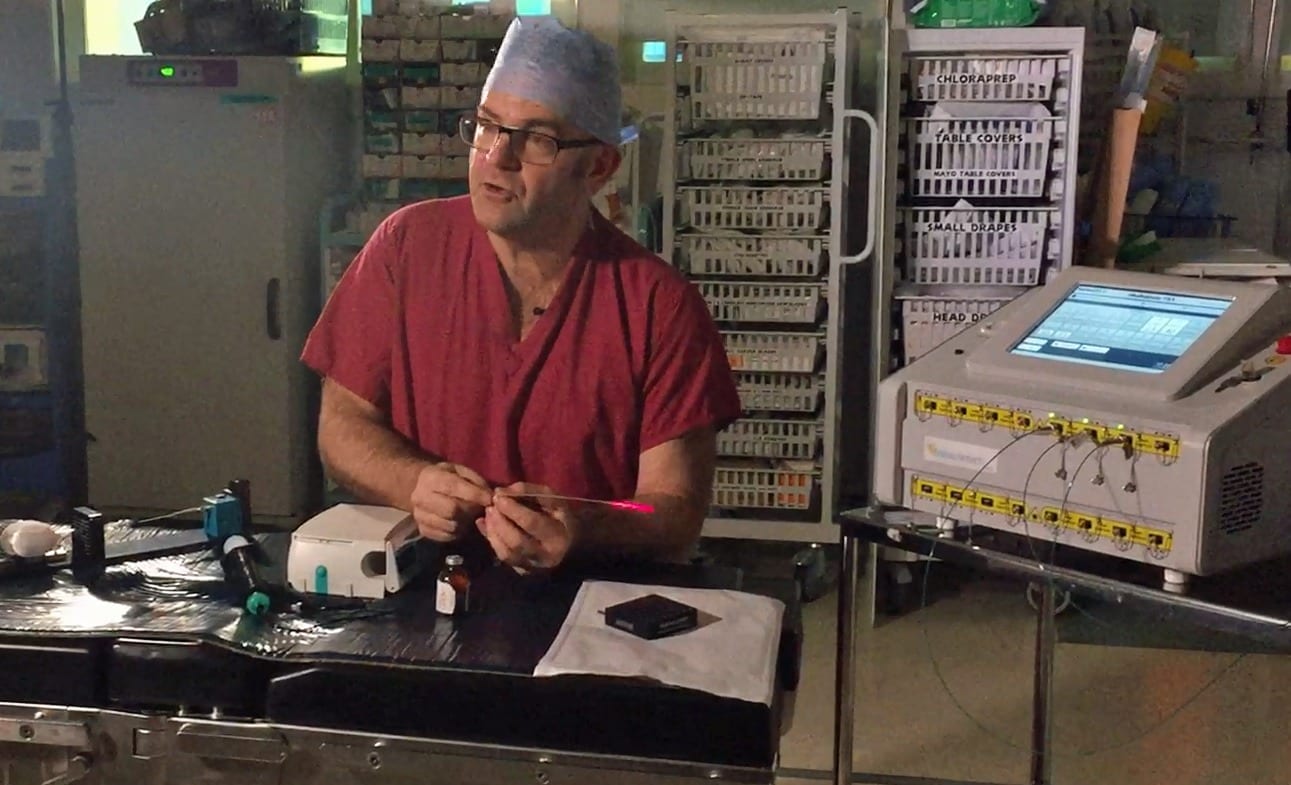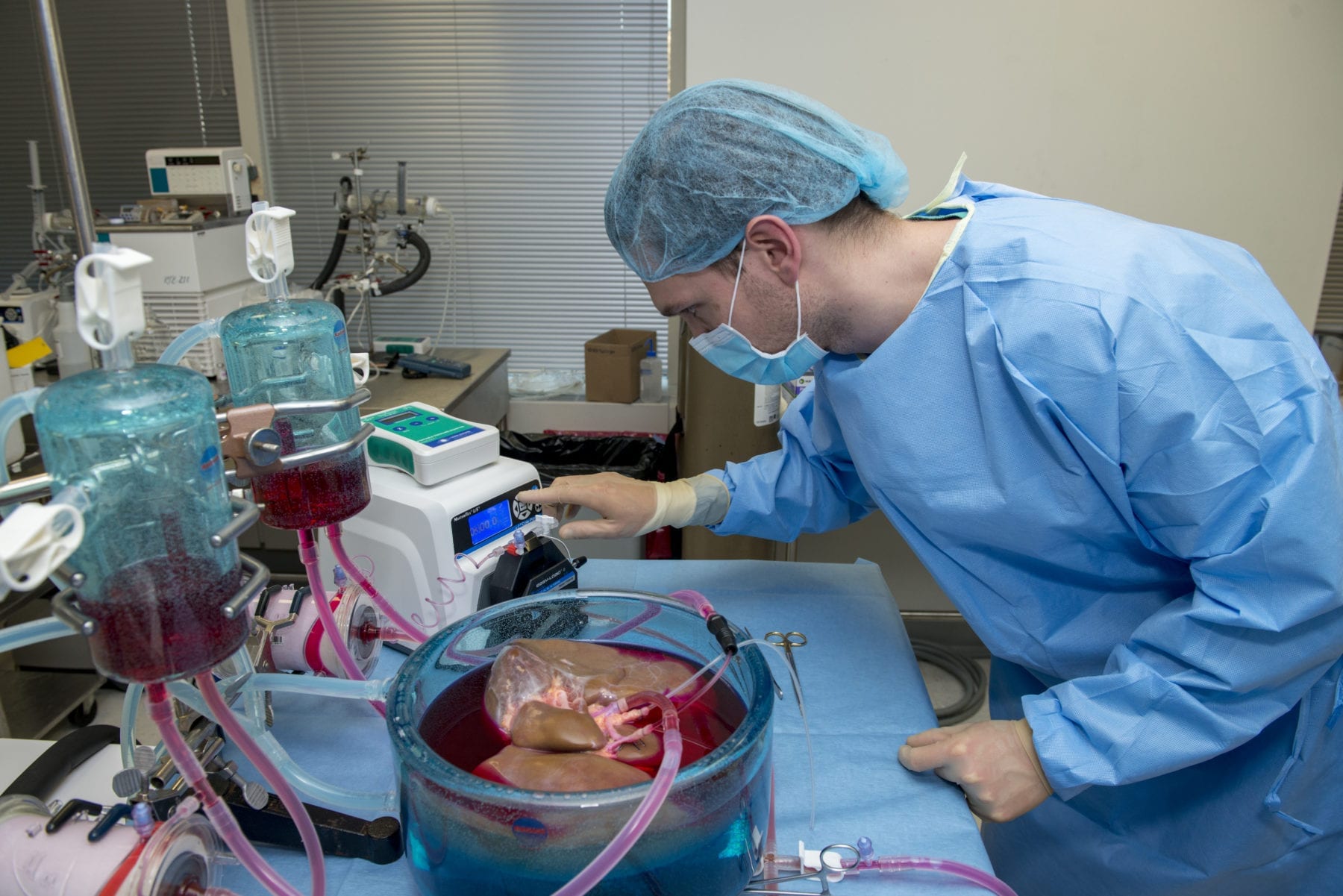
A new and simple blood test has been found to efficiently and accurately detect the presence of aggressive prostate cancer, according to research by Queen Mary University of London.
In combination with the current prostate specific antigen (PSA) test, the new test could help men avoid unnecessary and invasive biopsies, over-diagnosis and over-treatment.
Prostate cancer is the most common cancer in Western men, with 1.3 million new cases being diagnosed each year worldwide. It is currently detected using a blood test that measures PSA levels. Although it provides early diagnosis, the PSA blood test has a low specificity (high false positives) with about 75 per cent of all PSA positive results ending up with negative biopsies that do not find cancer.
When a high PSA level in the blood is detected, the patient undergoes a tissue biopsy of the prostate gland, which is invasive and carries a significant risk of bleeding and infection. On biopsy, the majority of patients with elevated PSA levels are found not to have cancer.
Additionally, most diagnosed early-stage prostate cancers are not fatal if left untreated. The current practice of the combined PSA test and biopsy for prostate cancer therefore results in unnecessary biopsies and over-diagnosis and overtreatment of many men.
Circulating tumor cells
The new prostate cancer test (the Parsortix® system from ANGLE plc) detects early cancer cells, or circulating tumor cells (CTCs), that have left the original tumour and entered the bloodstream prior to spreading around the body. By measuring intact living cancer cells in the patient’s blood, rather than the PSA protein which may be present in the blood for reasons other than cancer, it potentially provides a more accurate test for prostate cancer.
The study, published in the Journal of Urology, looked at the use of the CTC test in 98 pre-biopsy patients and 155 newly diagnosed prostate cancer patients enrolled at St Bartholomew’s Hospital in London.
The research team found that the presence of CTCs in pre-biopsy blood samples were indicative of the presence of aggressive prostate cancer, and efficiently and non-invasively predicted the later outcome of biopsy results.
When the CTC tests were used in combination with the current PSA test, it was able to predict the presence of aggressive prostate cancer in subsequent biopsies with over 90 per cent accuracy, better than any previously reported biomarkers.
Additionally, the number and type of CTCs present in the blood was also indicative of the aggressiveness of the cancer. Focusing on more aggressive prostate cancer may reduce over-treatment and unnecessary biopsies for benign and non-aggressive conditions.
‘A paradigm shift in the way we diagnose prostate cancer’
Lead researcher Professor Yong-Jie Lu from Queen Mary’s Barts Cancer Institute said: “The current prostate cancer test often leads to unnecessary invasive biopsies and over-diagnosis and overtreatment of many men, causing significant harm to patients and a waste of valuable healthcare resources. There is clearly a need for better selection of patients to undergo the biopsy procedure.
“Testing for circulating tumour cells is efficient, non-invasive and potentially accurate, and we’ve now demonstrated its potential to improve the current standard of care. By combining the new CTC analysis with the current PSA test, we were able to detect prostate cancer with the highest level of accuracy ever seen in any biomarker test, which could spare many patients unnecessary biopsies. This could lead to a paradigm shift in the way we diagnose prostate cancer.”
As this is a single centre study, the results need to be further validated in other independent research centres before the CTC test is available either privately or on the NHS in the UK, which could take a further 3-5 years. Clearance by the US Food and Drug Administration could also take 3-5 years.
Learn more: New blood test for prostate cancer is highly-accurate and avoids invasive biopsies
The Latest on: Prostate cancer
[google_news title=”” keyword=”prostate cancer” num_posts=”10″ blurb_length=”0″ show_thumb=”left”]
via Google News
The Latest on: Prostate cancer
- King Charles III Returns To Public Duties After Cancer Treatmenton April 30, 2024 at 3:32 am
King Charles III is set to return to public duties after the positive effect of his cancer treatment.King Charles has ...
- Clarity Pharma says its prostate cancer treatment has achieved ‘complete response’on April 29, 2024 at 8:35 pm
ASX medtech Clarity Pharma has seen startling results from the dosing of a patient suffering a severe and often lethal form of prostate cancer. The patient had already failed multiple lines of ...
- Science & Medicine: Revolutionizing prostate cancer treatmenton April 29, 2024 at 2:26 pm
Prostate cancer is the most common cancer diagnosed in men, and the five year survival rate is 97%.
- HIFU heat and ultrasound target prostate cancer without surgeryon April 29, 2024 at 8:00 am
The procedure avoids surgery by using ultrasound waves, imaging, heat, and algorithms to destroy prostate cancer tissue with far less chance of side effects.
- Prostate Cancer Breakthrough: Urine Test Avoids Unnecessary Biopsieson April 28, 2024 at 9:57 pm
A study in JAMA Oncology reveals that MyProstateScore 2.0, a new urine test analyzing 18 genes, surpasses PSA in detecting significant prostate cancers and could reduce unnecessary biopsies by up to ...
- Component of keto diet plus immunotherapy may reduce prostate canceron April 27, 2024 at 5:21 am
Adding a pre-ketone supplement—a component of a high-fat, low-carb ketogenic diet—to a type of cancer therapy in a laboratory setting was highly effective for treating prostate cancer, researchers ...
- Kurt Williams starts radiation treatment for prostate canceron April 26, 2024 at 3:08 pm
Today is the day! Today is the first day of my radiation treatment at Sentara's Oncology and Radiation department.
- OJ Simpson's cause of death revealed as prostate cancer, longtime attorney says ex-footballer thought he 'had beaten it'on April 26, 2024 at 1:12 pm
The former Hall of Fame football player and acquitted murderer succumbed to metastatic prostate cancer, his longtime lawyer Malcolm LaVergne said, People reports. Simpson's family announced his death ...
- Masturbation can lower prostate cancer risk: doctoron April 24, 2024 at 12:26 pm
“Although the mechanisms are not completely understood, these studies fit with the idea that ejaculation can reduce prostate cancer by decreasing the concentration of toxins and crystal-like ...
- Does ejaculating often reduce your risk of prostate cancer?on April 23, 2024 at 9:21 am
Although the mechanisms are not completely understood, these studies fit with the idea that ejaculation can reduce prostate cancer by decreasing the concentration of toxins and crystal-like structures ...
via Bing News










